
We caught up with Raymond Bertrand, medical planner for Jacobs. In this discussion, Raymond describes what medical planning means to him from a facilities perspective and what led him to rejoin Jacobs after leading the Health medical planning team in France from 2006 to 2014.
Tell us about your early background and education.
My father was an aircraft mechanic who had his own workshop and school, so I was raised in an aviation environment. At 16 years old I got my private pilot’s license and wanted to become an airline pilot, but couldn’t pass the vision requirements in Canada. At that time, I had an interest in working for the United Nations as a peacekeeper [a U.N. Peacekeeper works to protect those in war-torn countries in recovery and development efforts]. For 15 years I served in the Canadian Armed Forces Reserves and for the French Army Reserve Health Service, which included a peacekeeping tour in the Middle East for the U.N. This tour gave me time to explore my interests in psychology and human social sciences, so I studied at Edouard-Montpetit College where I received a bachelor’s degree in psychology.
How did you end up in design and architecture?
I always liked to draw, growing up sketching things out and building Legos as a child. So, I decided to apply my psychology background with architecture in environmental design. I got accepted in the environmental design program at the University of Quebec. I learned from an American professor who influenced me in an area then called environmental behavior and research. After I received my bachelor’s degree in environmental design, I got my Master of Architecture (March.) degree at McGill University. My graduate research at the University of Montreal focused on environmental behavior.
How did this lead to a specialty in health design?
My graduate research naturally attracted me to hospitals and health care facilities, which dealt with behavioral issues relating to the environmental care setting, health privacy, etc. So, I began my career in this field working for a multidisciplinary consulting firm in Montreal, which had doctors, nurses, health care administrators, accountants and other specialists so the firm could deliver the whole spectrum of operational and facility planning to hospitals.
For those unfamiliar with the term, what is a “Medical Planner”?
A medical planner is responsible for leading the overall planning and design concept of a facility. Before you do design work and architectural planning, you have to develop the programming, and functional and technical aspects that addresses all the client’s requirements —this could be number of rooms, space settings, functional relationships, etc. The Medical Planner is involved on the upstream side before the architects come in by translating the hospital or facility requirements into capacities; what we call workloads like the number of visits and patient volumes. The planner then projects these figures into capacities and develops the program –bridging the gap between the client and the architects. A good medical planner strives to keep abreast of the constantly changing modalities, procedures and delivery systems within the health care environment, and understands how design affects those systems. I cowrote a book about the importance of facility programming and the role of the programmer as an interpreter/translator.
“A good medical planner strives to keep abreast of the constantly changing modalities, procedures and delivery systems within the health care environment, and understands how design affects those systems. [Medical planners] bridge the gap between the client and the architect.”
What are a couple health projects or programs you are most proud of managing when you were with Jacobs for almost 10 years?
It’s hard to pinpoint just one or two, as I was involved in numerous healthcare facilities worldwide, but I did enjoy providing programming and architectural design services for Tawam Hospital in Al Ain in Abu Dhabi. That hospital was unique in many ways, including the concept of “preliminary design” that encompassed scalability for future use, infection control, and energy conservation/renewable energy management. Another interesting aspect of that project was that the hospital was managed by Johns Hopkins Medicine International. Another project that comes to mind is the Aarhüs University Hospital in Aarhüs, Denmark. In 2011, a new teaching Hospital in Aarhüs was created, that become the largest hospital in Denmark and one of the largest in Europe. I found the Scandinavian approach to health care very exemplary—the system approaches health care holistically, looking to prevent chronic conditions before they happen with an emphasis on preventative care.
What’s the favorite part of your job?
I like the opportunity to work on a variety of different projects, and Jacobs has given me that opportunity for the 10 years I spent in Paris. At that time, I worked on two or three major projects simultaneously for about six to eight months, then went on to another project in another region of the world. I like traveling and discovering other cultures. Jacobs gives us the ability to adapt as the company has offices throughout the world. I was happy to be offered to come back to Jacobs and join the new Health Market. It is an acknowledgement and commitment that we are more about just designing and building buildings and are more intuitive in our planning process to deal with our clients’ challenges.
What are some of the trends in healthcare design and infrastructure development worldwide?
One major trend that is reoccurring is the shift to ambulatory care (medical services performed on an outpatient basis outside the hospital). There are less acute care beds, and more care is being done outside the hospital, or in the home through telemedicine. The case of the “virtual hospital” is being explored, especially by the care providers. There also is a trend toward technology being used to improve the quality of care.
How do you spend your free time? What would we most likely find you doing when you’re not working?
I love traveling. It was easy for me to live in Europe (I lived in Paris for five years) because you could go from Paris to Lisbon or Barcelona relatively cheaply. I am getting to know the Americas better now and spending time in Florida. For a hobby, I’ve started to get interested in sailing and enrolled in a training course.
What do you most like about being part of #OurJacobs?
The first word that comes to mind about working here is “transparency.” In the past, we were more in silos, either based on region or services. I see there’s more interaction between various groups now where ideas are shared. I just love the attention given to employees—all the training and opportunities the company has available to their employees. Also, the quality of service we give to our clients is outstanding.
You might also be interested in...
-
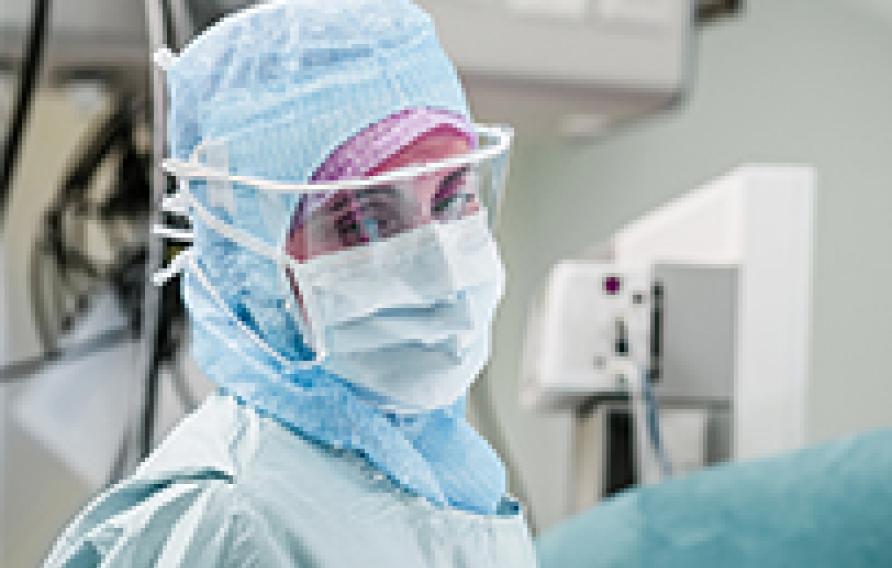 Solution
SolutionHealth & Life Sciences Market
Jacobs’ deep subject matter expertise across diverse scientific, infrastructure, environmental and digital domains in biopharmaceutical manufacturing, health governance, health infrastructure, and operations advisory provides market differentiation and distinct competitive advantage.
-
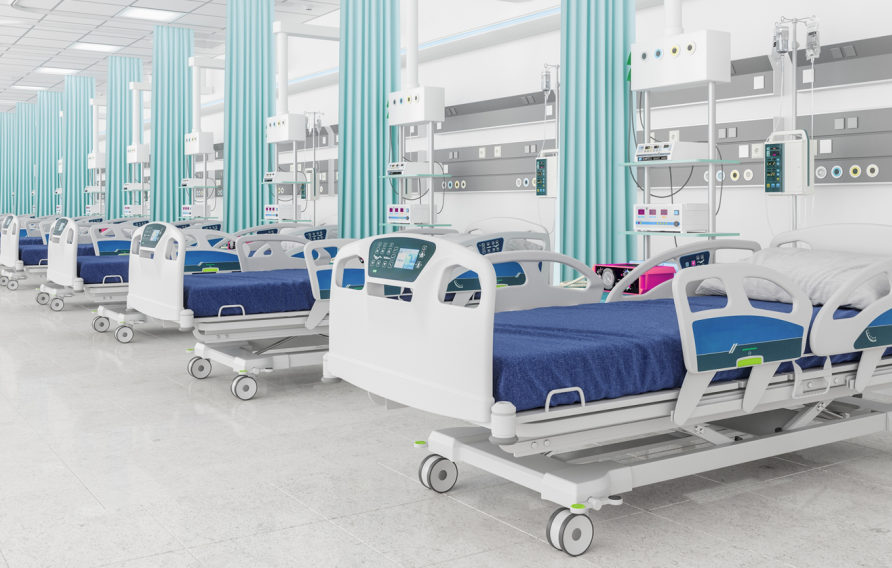 News
NewsDr. Nino Kharaishvili Joins Jacobs as Principal of the Company's Health System Resilience Practice
Jacobs is pleased to announce that Nino Kharaishvili, MD, MBA, PMP, CMAP, a global expert in health security and health system emergency preparedness and resilience, has joined the company's Federal & Environmental Solutions team as Principal of the Health System Resilience practice.
-
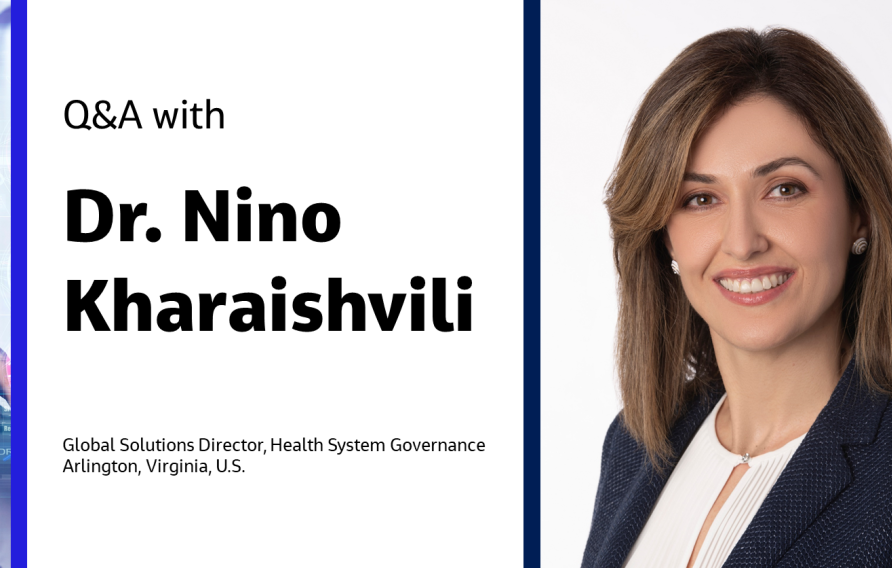 News
NewsHealth system governance: Improving the resilience of our health ecosystem
In this piece, we connect with Health Systems Governance Global Solutions Director Dr. Nino Kharaishvili, to talk about her role partnering with clients across our markets and geographies to solve their challenges, and her ongoing journey to improve awareness around the impact of climate change on human health.
-
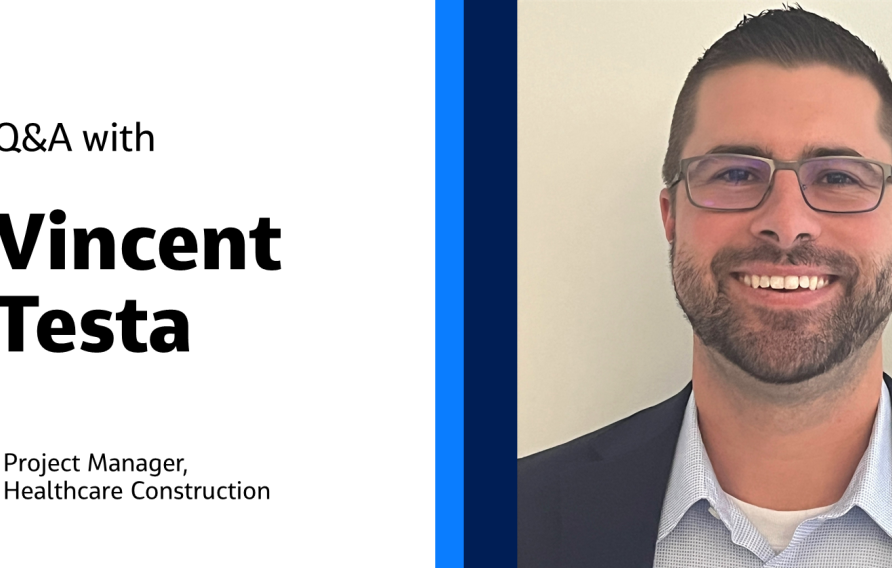 News
NewsQ&A: Talking with Vincent Testa, Project Manager, Healthcare Construction
To mark the opening of the new Taneja Center for Surgery—the largest surgical expansion in Tampa Bay history—we caught up with one of the team members who worked on that project, Project Manager Vincent Testa.
-
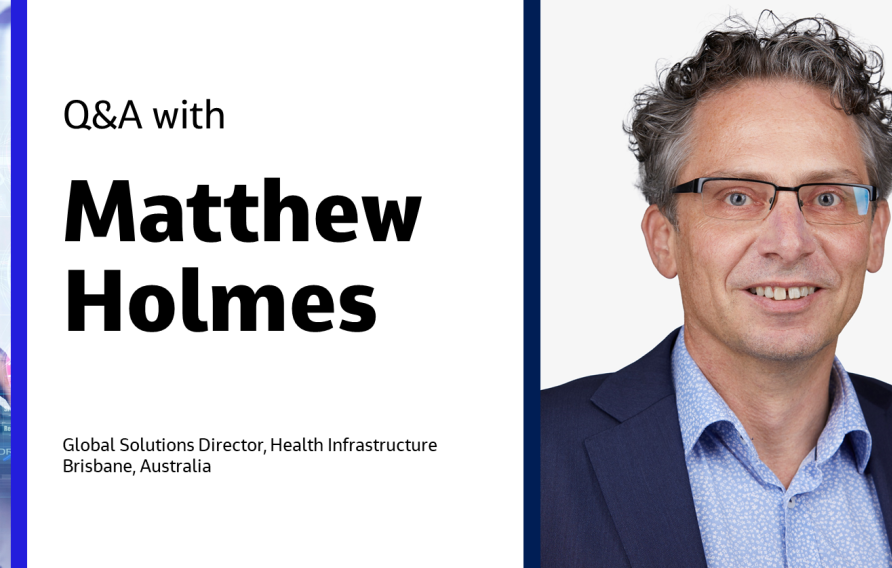 News
NewsDesigning for the patient, the clinician and the community: The future of health infrastructure
We connect with Global Solutions Director for Health Infrastructure Matthew Holmes to talk about his role helping clients develop and sustain healthcare facilities around the globe, and what inspires him most about his work supporting the delivery of healthcare services in Australia, New Zealand, Singapore, and other regions through design planning.
-
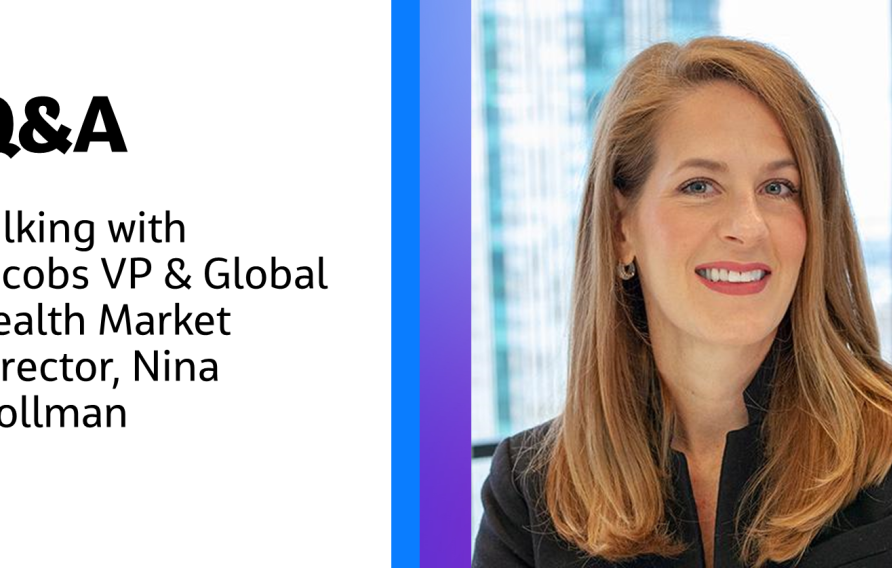 News
NewsQ&A: Talking with Jacobs Global Health Market Director Nina Wollman
Nina Wollman, Jacobs Global Health Market Director discusses the new Health sector as a growth market, the impact the pandemic had in accelerating that strategy as well as the impact it had on her personal work style.
Join #OurJacobs team
What drives you drives us as we work to build a better world – together. At Jacobs, every day is an opportunity to make the world better, more connected, more sustainable.
We’re always looking for dynamic and engaged people to join our team. Bring your passion, your ingenuity and your vision.

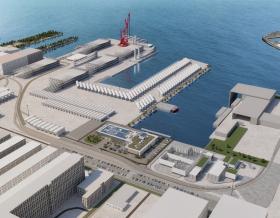



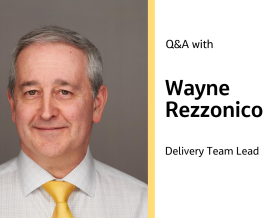



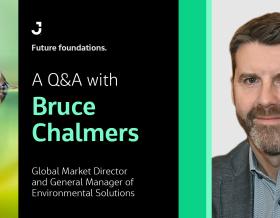

.jpg?h=c7c14dee&itok=FmPI2126)








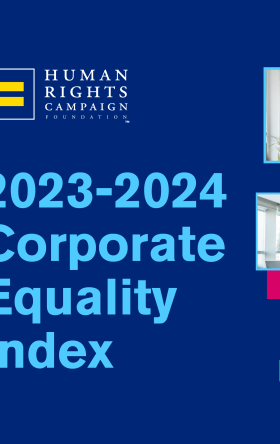

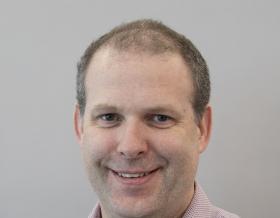







_0.jpg?h=8a6d63f3&itok=5vsqFiQH)









.png?h=1314d3d4&itok=rFs9mG95)















